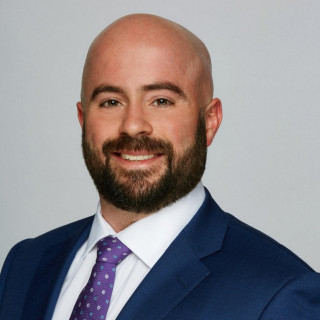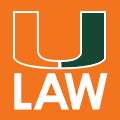
Michael Mayoral
Shareholder & Attorney at Law | Perez Mayoral, P.A.
Michael Mayoral is a co-founder and shareholder of Perez Mayoral, P.A., where he co-leads the firm’s Homeowners and Condominium Association Litigation Practice Group. A seasoned trial attorney, Michael focuses his practice on condominium and homeowners’ association (HOA) law, real estate litigation, and business and insurance litigation throughout Florida.
Michael represents homeowners, unit owners, and property investors in disputes involving the enforcement of governing documents, wrongful fines, maintenance and repair obligations, selective enforcement, property damage, and other association-related conflicts. His work in this area is informed by a broader litigation background that allows him to address governance and legal compliance issues with strategic precision.
Prior to founding Perez Mayoral, P.A., Michael practiced at a prominent insurance defense firm, representing individuals, companies, apartment complexes, and community associations in personal injury, negligent security, and wrongful death claims. He later led a litigation team focused on complex plaintiff-side cases, including high-profile environmental claims.
Michael also has experience advising publicly traded real estate investment trusts, real estate holding companies, foreign suppliers, and closely held corporations in matters involving contract disputes, insurance coverage, partnership disagreements, and shareholder derivative claims. He regularly appears in both state and federal courts and is admitted to practice before the U.S. District Courts for the Southern and Middle Districts of Florida, as well as the Southern District of Alabama and the Eastern District of Louisiana.
He earned his J.D., cum laude, from the University of Miami School of Law, and his B.A., magna cum laude, in Philosophy from Florida International University.
- Real Estate Law
- Commercial Real Estate, Condominiums, Homeowners Association, Mortgages, Neighbor Disputes, Residential Real Estate
- Business Law
- Business Contracts, Business Dissolution, Business Finance, Business Formation, Business Litigation, Franchising, Mergers & Acquisitions, Partnership & Shareholder Disputes
- Insurance Claims
- Property Insurance
- HOA & Condominium Law - Homeowner Representation
- Free Consultation
- Credit Cards Accepted
- Contingent Fees
- Florida
- The Florida Bar
- ID Number: 112080
-

- 5th Circuit
-

- 11th Circuit
-

- Federal Circuit
-

- Spanish: Spoken
- Shareholder | Attorney at Law
- Perez Mayoral, P.A.
- - Current
- Trial Attorney
- Downs Law Group
- -
- Senior Associate
- Quintairos, Prieto, Wood & Boyer
- -
- Owner | Trial Attorney
- Mayoral Law Firm, P.A.
- -
- Trial Attorney
- Miami Dade Public Defender's Office
- -
- University of Miami School of Law
- J.D. | Law
- Honors: Cum Laude Honors, Dean's List, Highest Grades in Criminal Procedure and Florida Legal Research.
- Activities: Mass Torts and Complex Litigation Society
-

- Florida International University
- B.A. | Philosophy & Economics
- Honors: Magna Cum Laude
-

- The Florida Bar # 0112080
- Member
- Current
-

- Florida Bar's Real Property, Probate and Trust Law Section
- Member
- Current
-

- Florida Bar Trial Lawyers Section
- Member
- Current
-

- Miami-Dade Trial Lawyers Association
- Member
- Current
-

- Cuban American Bar Association
- Member
- Current
-

- Condominiums: Past, Present, and Future, Florida Lawyers Network - Coral Gables Chapter Meeting, Coral Gables, FL
- Florida Lawyers Network
- Attorney Michael Mayoral recently spoke to the Coral Gables chapter of Florida Lawyers in that Order on the topic “Condominiums: Past, Present, and Future.” His presentation explored the full history and development of condominiums in Florida, including their legal creation, the rise of disputes and litigation, the impact of the Surfside collapse, and the significant changes that have followed. He also discussed the current challenges and expectations facing condominium communities in Florida.
- UM Law - Florida's Stand Your Ground Law Panel, Coral Gables, FL
- University of Miami School of Law
- Litigation Specialization Certificate
- University of Miami School of Law
- Q. What legal actions can I take after being punched twice by the same person in Florida?
- A: In Florida, even a single punch is considered a criminal battery because any unwanted physical contact qualifies as battery under the law. If there are injuries, the charge can be enhanced and, in some cases, may rise to a felony, but without serious injury or broken bones it is generally treated as a misdemeanor. You can report this to law enforcement or directly to the State Attorney’s Office, and with a witness, they should be able to assign an investigator to pursue charges and potentially arrest the person.
- Q. Can I speak to my HOA board about assessment issues before involving an attorney?
- A: You’re in a situation where you have to be very careful. If you don’t pay the amounts being demanded and the association moves forward with a lien foreclosure lawsuit, they could actually foreclose on your home. Once an attorney is involved, the account is usually being treated as a collections matter, and that attorney’s role is mainly to run up fees and push for payment. While you technically can reach out to the board, the reality is the attorney has been hired to handle collections, and they’ll be the one driving the process.
Given the amounts at issue and the fact fees are escalating quickly, this is the type of situation where you should strongly consider hiring an attorney or ... Read More
- Q. How to handle pet registration fee demand after lease renewal with registered service animals?
- A: Generally speaking, the only way you should be required to pay a pet registration fee is if it is spelled out in your lease or another binding document that incorporates the community’s rules. If your lease or renewal agreement doesn’t say anything about a registration fee, it usually cannot be imposed after the fact. That said, if the lease references following all community rules and the rules include a registration fee, then you may be obligated to pay it. In most cases, these fees are not waived unless you already paid them or can prove the landlord agreed otherwise in writing.
As for your dogs being service animals, that is a separate issue. If the landlord attempted to restrict or ... Read More

 Michael Mayoral - FLN Event 09/26/24
Michael Mayoral - FLN Event 09/26/24
 What is most important for someone to know who is living under an HOA? -Perez Mayoral
What is most important for someone to know who is living under an HOA? -Perez Mayoral
 What are my rights regarding challenging a special assessment? - Perez Mayoral
What are my rights regarding challenging a special assessment? - Perez Mayoral
 Can I file a lawsuit against an individual board member of my HOA? - Perez Mayoral
Can I file a lawsuit against an individual board member of my HOA? - Perez Mayoral
 Can my HOA sue me for violating the community's rules? - Perez Mayoral
Can my HOA sue me for violating the community's rules? - Perez Mayoral
 What should I do if I believe my HOA is discriminating against me? - Perez Mayoral
What should I do if I believe my HOA is discriminating against me? - Perez Mayoral
